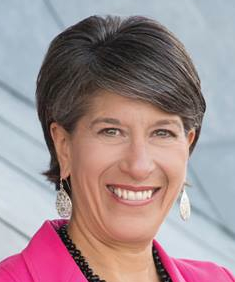Millennials are causing the U.S. divorce rate to plummet, according to a recent report from Bloomberg News. In fact, divorce is down 18 percent since the Great Recession. On the surface this sounds like great news, but peeling back the layers reveals some good news accompanied by some not-so-good news.
The data from the report do indicate that young couples are looking at marriage differently. They are marrying later in life, waiting until after they have completed their education and have found a job. They are also being pickier about whom they marry.
Sociologist Brad Wilcox studies marriage and divorce trends as the director of the National Marriage Project at the University of Virginia. He agrees that there is some news worth celebrating, but there is also a downside.
"Since the 1960s, we have seen a dramatic retreat from marriage with more divorce, single parenthood and unmarried childbearing," says Wilcox. "But the good news is that most of these trends have slowed in recent years, and some have even reversed. In fact, divorce and unmarried childbearing have reversed course: both are down. This means a clear majority of children born to married couples today will experience a stable family life."
Based on the data, Wilcox believes marriage is becoming more stable and the adults who are entering marriage are more intentional about commitment. They don't want to make the same mistake their parents often made in the '60s and '70s at the height of the divorce revolution.
The rate of children born outside of marriage has gone from 41 percent to 39.8 percent. This is a modest shift, but no less a change. Wilcox says, "The Great Recession is really the first time we have seen the unwed childbearing trend go down. Many young women and young couples have become more cautious about having children outside of marriage."
"We will see a stabilization in families for children," Wilcox says. "We might actually see more children raised in two-parent, married families than in the past decade."
Now for the bad news.
"Based on the research, we are going to see a decline in marriage for millennials and those coming behind them," Wilcox says. "They are more cautious. Many of the young men are less accomplished and appealing as potential mates, and both young men and women are more reluctant to commit."
Census figures released earlier in the month show the median age of first marriage in America is now around 30 for men and 28 for women. While millennials may be holding off on marriage, they are not holding off on living together. Census numbers indicate that in 2018, 15 percent of individuals ages 25-34 cohabited with a partner, a 12 percent increase from just 10 years ago. More Americans under 25 live with a partner than are married to one.
The second piece of bad news is it is still the case that about one in two children born to parents without college degrees will experience family instability. By contrast, only about one-fourth of children born to college-educated parents will see their parents break up. The class divide in American family life seems here to stay, according to Wilcox. There is an interesting caveat to note, however. When looking closely at the data, Wilcox found that religious attendance is as powerful a predictor of marital stability as is a college education.
"People who regularly attend religious services are more likely to enjoy stable, happy marriages," Wilcox shares. "This makes me think we need to expand our thinking beyond just the socio-economic factors. It turns out that religious attendance is about as important as college in predicting marital stability. In fact, we know there are plenty of folks who are not college-educated who will enjoy good, stable marriages. One factor that fuels stronger marriage among less-educated Americans is an active faith."
While it is true that more people who are getting married are staying married, there is a very significant issue going on that cannot be ignored. A large portion of the population is not experiencing the benefits of marriage, and it doesn't only impact the couples who aren't marrying; it affects the children and society as a whole.
Julie Baumgardner is president and CEO of family advocacy nonprofit First Things First. Email her at julieb@firstthings.org.

